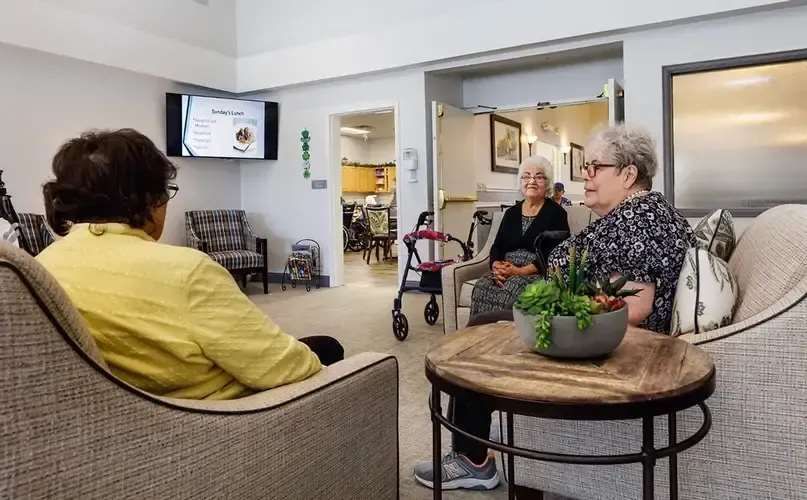Do You Need To Improve Your Self Esteem?
Do You Need To Improve Your Self Esteem?
Many of us have what we think of as a normal healthy ego. And others are saddled with self-doubt and question their value at every turn. There’s also a group of us that believe we’re worthy in some areas but struggle believing we’re good enough in other areas. No matter where you land, it’s doesn’t hurt to be reminded of how we can keep feeling good about ourselves or even raise our level of self-love and acceptance.
- Identify Your Strengths – everyone has unique talents and accomplishments. Make a list of things you’ve done that you’re proud of, with help from friends and family, if necessary. Read it often to remind yourself of why you should be appreciated and celebrated. Recognition and repeated use of your individual capabilities can bolster your self-esteem.
- Challenge negative thinking – it’s important to notice, identify and change negative thoughts as they occur. Not giving yourself full credit after a specific success (“I completed that new task well because it was easy.”) is an example of how we can undermine ourselves. If a negative thought pops into your head, replace it with a positive thought instead (“I did well because I worked hard. I deserve to do well.”)
- Avoid idealism or perfectionism – although it may not seem like it, it is true that everyone makes mistakes. No one is perfect. Mistakes are just one step in the learning process. Consider instead what you learned.
- Stop comparing yourself to others – life is not a competition! You are unique and your life experiences have brought you to where you currently are. Take a break from social media where only the best photos and events are posted and the standards aren’t based in reality. Again, your accomplishments are unique to you and make you important and special in your own right.
- Practice acts of kindness – studies have shown that even small acts of kindness create a ripple effect of positivity. Offering a genuine compliment, helping a friend or neighbor, assisting when and where you can, are invaluable at raising everyone’s self-confidence.
Be gentle with yourself – you can’t change where you are right now. Focus on how far you’ve come and not how far you have to go.
A REVIEW - ASSISTED LIVING VS A NURSING HOME
(by Robin Avery)
Why Assisted Living is the Preferred Choice for Long-Term Care
When considering long-term care options for yourself or a loved one, the choice often comes down to assisted living or a nursing home. While both support seniors, assisted living communities like The Retreat at Church Ranch offer a more comfortable, engaging, and personalized approach to aging.

Why Assisted Living is the Preferred Choice for Long-Term Care
When considering long-term care options for yourself or a loved one, the choice often comes down to assisted living or a nursing home. While both support seniors, assisted living communities like The Retreat at Church Ranch offer a more comfortable, engaging, and personalized approach to aging.
A Home-Like Environment
Assisted living communities offer private or semi-private apartments with comfortable, home-like surroundings. Residents can personalize their space and enjoy a sense of familiarity rather than the more clinical setting of a nursing home. This contributes to emotional well-being and helps residents feel at home.
Engaging Lifestyle & Social Connections
At The Retreat at Church Ranch, we believe in nurturing the mind, body, and spirit. Our community offers engaging activities, wellness programs, and social events encouraging friendships and fulfillment. From fitness classes to music, gardening, and spiritual gatherings, residents enjoy an enriched quality of life that nursing homes often lack due to their focus on medical care.

Cost Comparison: Assisted Living vs. Nursing Homes
One of the most significant factors in choosing long-term care is cost. Assisted living is often the more costeffective option. According to national averages:
- Assisted Living: $4,500 per month
- Nursing Home (Semi-Private Room): $8,000 per month
- Nursing Home (Private Room): $9,500 per month
That’s a savings of at least $3,500 per month (or $42,000 per year) when choosing assisted living over a nursing home. Nursing homes provide 24/7 skilled medical care, and they are necessary for those with serious health conditions, but for many seniors, assisted living provides the right balance of care, independence, and affordability.
Personalized Care with Dignity
While assisted living supports daily needs, it prioritizes personal dignity and choice. Care plans are tailored to each resident’s needs, ensuring they receive necessary assistance while maintaining as much autonomy as possible. An assisted living community means choosing a vibrant, supportive, and engaging lifestyle—at a more reasonable cost. If you’d like to learn more about how The Retreat at Church Ranch can provide the proper care for your loved one, we invite you to visit us and experience the warmth of our community firsthand.
Another Scam Is Happening – Don’t Fall For This One
There’s another new scam happening in Colorado. In this one, scammers have posed as the E-470 Toll Authority. They send a threatening text message requesting money and personal information. Scammers reference an unpaid toll bill, or they imply the reciever’s DMV information is in jeopardy in the text. They're trying to get people to click links to make payments and share personal information.
The E-470 Toll Authority released a statement saying that neither the E-470 Authority nor ExpressToll collect any payment or personal information through text messages. The FBI is tracking the source of the scams and has found that many originate overseas. Don’t be fooled by these scamming texts!
The Long Straw Club
For the past 20 years, The Long Straw Club has been a cornerstone of our assisted living community, offering a deep and thoughtful exploration of the spiritual, emotional, and psychological dimensions of aging. Originally founded by noted gerontologist Robin Avery, the club has been guided by a diverse array of wisdom teachers - including rabbis, priests, ministers, and other spiritual leaders – who have helped members navigate the later chapters of life with insight and grace. Today, under the esteemed leadership of Lloppón Rinpoche, The Long Straw Club continues to foster meaningful discussions, personal reflection, and a sense of shared wisdom among its members. Please join us on the last Tuesday of every month.
RESIDENT BIRTHDAYS
4/2 – John L.
4/14 – Ricky M.
4/21 – Millie M.
4/26 – Roberta C.
STAFF BIRTHDAYS
4/4 – Juan S .
4/5 – Domenique M.
4/10 – Gabriela D.
4/16 – Adrianna R.
4/21 – Destiny M.
4/25 – Milena G.

APRIL EMPLOYEE ANNIVERSARIES
4/1 – Milena G – 20 years
4/4 – Crystal R – 2 years
4/10 – Gabriela D – 1 year
4/14 – Paula D – 1 year

RESIDENT OF THE MONTH
Daniel G.





